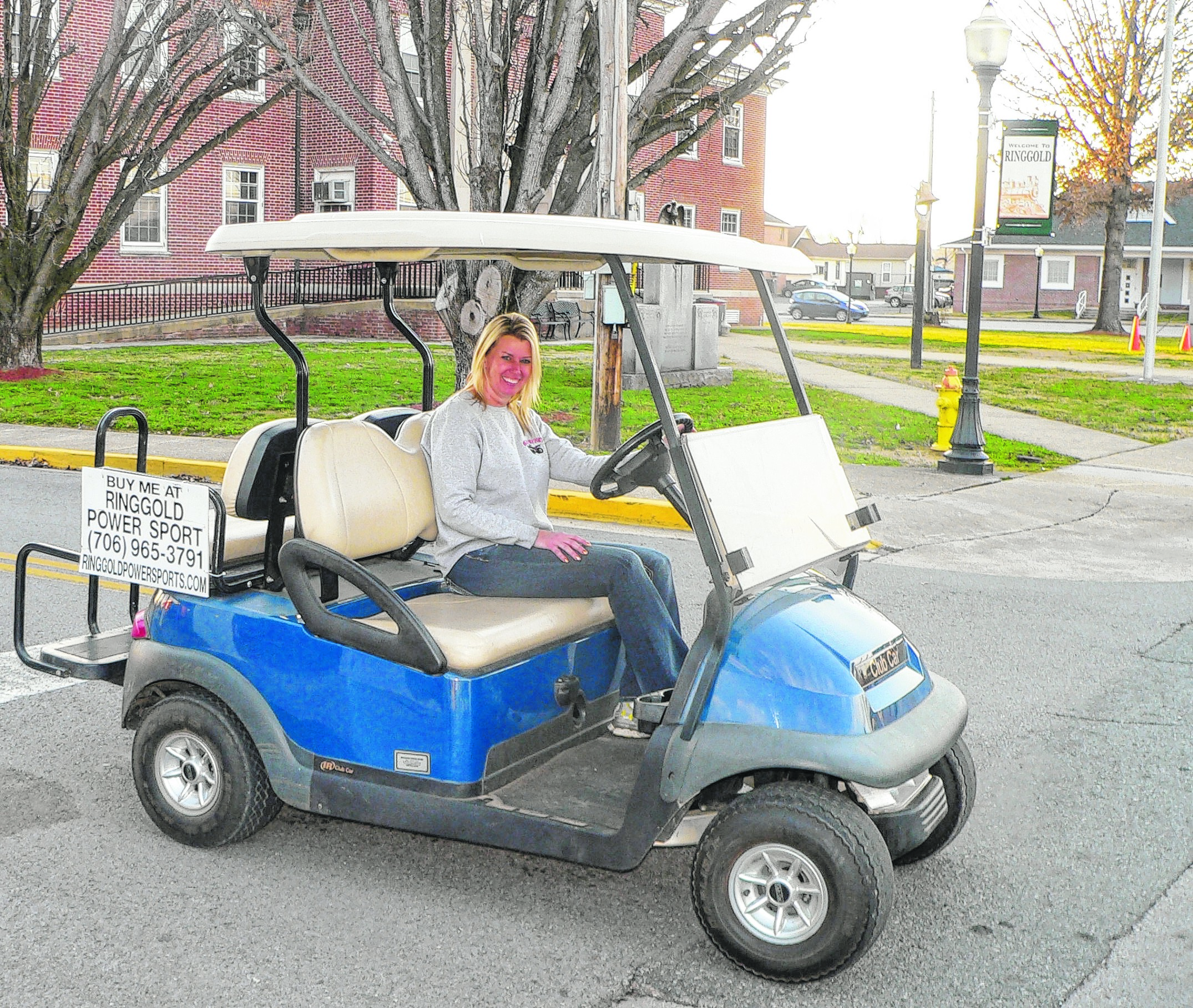A new year means laws passed by the 2011 state legislature are now in effect.
The most talked about of Georgia's new laws for 2012 is anti-immigrant HB87, that requires employers to use E-Verify before hiring any workers.
But for most Georgians, particularly in Catoosa County, two less controversial laws will be more pertinent. One requires that anyone using a state-managed wildlife area have a permit; the other concerns use of golf carts on public streets and roads.
As of Jan. 1, a Georgia Outdoor Recreational Pass will be required to use 32 properties managed by Wildlife Resources Division.
The properties are wildlife management areas and public fishing areas. Each is managed for wildlife/fish habitat, with development and funding having been funded mostly by revenue from hunting and fishing license sales.
Secondary uses - hiking, bicycling, caving, bird watching, swimming and similar activities - are also allowed at these sites.
Wildlife Resources Director Dan Forster said GORP answers a long-realized need for those secondary users to help cover the cost of providing and maintaining the public properties they enjoy. This new system allows a broader range of constituents beyond hunters and anglers to contribute through a fee structure that is "the result of a broad-based and extensive public involvement process."
GORP impacts fewer than one-third of the more than 100 managed properties across the state but does include two, the Zahnd WMA and Crockford-Pigeon Mountain WMA, that are located in Walker County.
Signs are posted on affected properties and a complete list of sites is online at www.georgiawildlife.com.
Similar to fees charged at state parks, the cost for a GORP ranges from $3.50 for a three-day pass to $19 for one valid for an entire year.
"Hunters have been paying $19 for hunting licenses for quite a few years," said Marty Sartin, owner of Tails & Fins Outfitters located on Lafayette Road between Rossville and Fort Oglethorpe. "Cavers, horseback riders and mountain bikers have been coming in - even during hunting season - and this is both a fairness and a safety issue."
Sartin said revenue generated by GORP sales should allow hiring more rangers to patrol the managed lands, repair roads and trails, and make it feasible to set schedules that will make it safer for secondary users during hunting seasons.
"Hopefully, this will help with planting food plots where fields are ungroomed and overgrown. That is a waste of land," he said. "This will keep one person, or a few people, from having to foot the bill, and make these places pretty and nice enough so you'd want to take your family there."
Also new in 2012 is a law that designates golf carts weighing less than 1,375 pounds and having a top speed of 20 mph as "personal transportation vehicles." As such, golf carts are now required to have a braking system, reverse warning device, tail lamps, a horn and hip restraints.
"I'm surprised they didn't require side mirrors and turn signals," said Bonnie Wagner, owner of Ringgold Power Sports.
Wagner said she has sold golf carts for about nine years - "some orders come from as far away as Las Vegas" - and is glad to see the law enacted.
"As long as they don't drive on the highways they can use a golf cart on any road with a posted speed limit of 25 mph," she said. "A lot of people that have them around here live on the other side of the Depot and will drive them, using back roads, to Fred's, the post office, Shop-Rite, the courthouse and election office.
"The city owns golf carts and uses them to read water meters and help when the flags are placed along the roads for Memorial Day and Veterans Day."
Ringgold and Fort Oglethorpe have local ordinances concerning golf carts being used on public streets, and the Fort Oglethorpe City Council is considering purchasing some of the electric carts to patrol the city's walking trails and parks.
Since they are designed for use on paved paths or mowed grass, golf carts were used following the April tornado to deliver supplies and carry a precision chainsaw sharpener from site to site in downtown Ringgold.
In addition to the convenience and quiet of riding in a cart, Wagner said the cost of owning and operating an electric cart is low.
"When gas prices go up, people call about scooters and golf carts," she said. "Insurance is not required; electrics will run 30-50 miles on a single charge; new batteries last about six to eight years with proper maintenance and recharge in about four to five hours. They are durable, and with proper adult supervision kids can learn to safely operate them."
Prices typically range from a new electric, fully loaded cart costing between $5,000 and $6,000, with used prices for, say, an electric 2005 model being about $2,000, or about $3,000 for a used 2007 gas powered golf cart.
Concerning the new law, Wagner said there is some uncertainty about the tail light provision and that it should specify a stop light being in place.
There is also a misconception that the new law requires seat belts being used, something that is not the case, she said.
"It's not a big deal," Wagner said. "A hip restraint [a raised seat handle] is already in place on the side of the seat."
While the new law sets standards that will improve golf cart safety, something that is not required but would make their use even safer would be separating them from regular traffic.
"I'd love to see a golf cart or combination cart/bike lane in the city," Wagner said.
